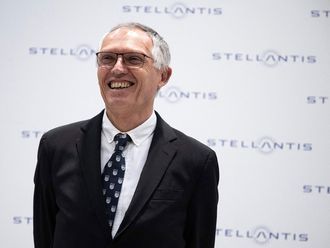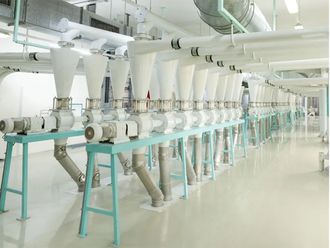Dubai: Pension funds, which are the second largest investor in the Gulf Co-operation Council (GCC) after Sovereign Wealth Fund, must widen the scope of investments and get into relatively risky products like Exchange Traded Funds (ETF) and Real Estate Investment Trusts (REIT), which can also act as a diversification tools.
“Considering the growth in pension assets from a youthful population, these funds have the room to take higher risk. This opportunity should be used proactively in order to widen the scope of investments and delve into products such as ETFs, REITs and other structured investments,” Marmore Mena Intelligence said in a note.
The performance of Reit’s have been beating the equity indices.
The FTSE NAREIT Equity REIT Index has delivered a 21 per cent total return since January 2016. This compares with 25 per cent for the S&P 500.
And iShares Core Growth Allocation ETF’s returns stood at 12.8 per cent so far in the year.
But fund managers need to take into account a multitude of factors to find the right mix of investments.
“Currently there is no one-size-fits-all rule to define the proper level of basic pension or replacement rate. Cultural factors, such as family structures or the willingness of individuals to save for old age play a big role. Economic factors, such as the general standard of living of the population, estimates about minimum consumption needs, the existence of other formal and informal social assistance programs, and, of course, the costs have to be considered,” Marmore said.
Growth
The GCC population has witnessed tenfold growth in the last 50 years, with expectations that it will further grow by another third to 53 million people by 2020.
And most of it would be young people, who have an ability to take risk, so that will be an opportunity to get into more structured investment products.
Pension funds have the mandate to invest in the local stock markets and they currently contribute about 5 per cent of the market cap. Saudi Arabia has the highest exposure to the stock market followed by Kuwait and Qatar. They serve as anchor investors with a long-term investment horizon, thereby providing support in times of crisis and reducing volatility. Pension funds, being one of the largest investor classes, are an important force for the stability and growth of GCC markets.
The total pension fund asset in the GCC by 2020 is estimated to be $602.4 billion (Dh2.2 trillion) and the figure may reach $938.6 billion by 2025, Marmore Mena Intelligence estimates.
Portable investment solutions
According to a survey, more that 64 per cent of expats working in the UAE plan to return to their home countries when they retire, highlighting a need to choose investment solutions that are suitable and portable to their home country.
A breakdown of the data shows that 75 per cent of North American expats plan to return to their home countries when they retire, 62 per cent of European (excluding UK) expats plan to return to Europe when they retire, a survey conducted by Old Mutual and Quilter Cheviot revealed.
According to the survey, about 9 per cent of expats plan to remain in the UAE when they retire. This contradicts the belief that all expats leave the UAE once they hit retirement.
“With so many UK expats stating their intention to return to the UK, there is a very clear need for a portable investment solution to enable them to take their savings home in a tax efficient way,” Old Mutual said in a statement.
“There are many investment options open to UK expats to invest in while overseas, but in order for the products to be tax efficient and avoid a UK deemed gain tax charge when they return to the UK, they impose limitations on the assets which can be held,” the statement added.












